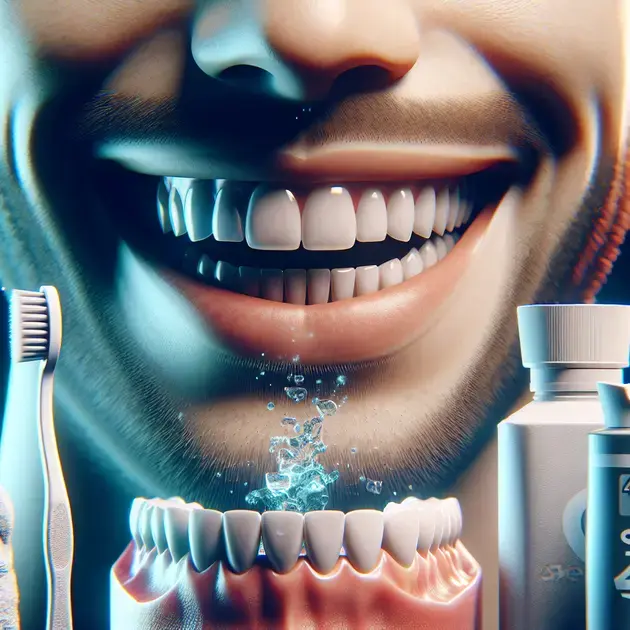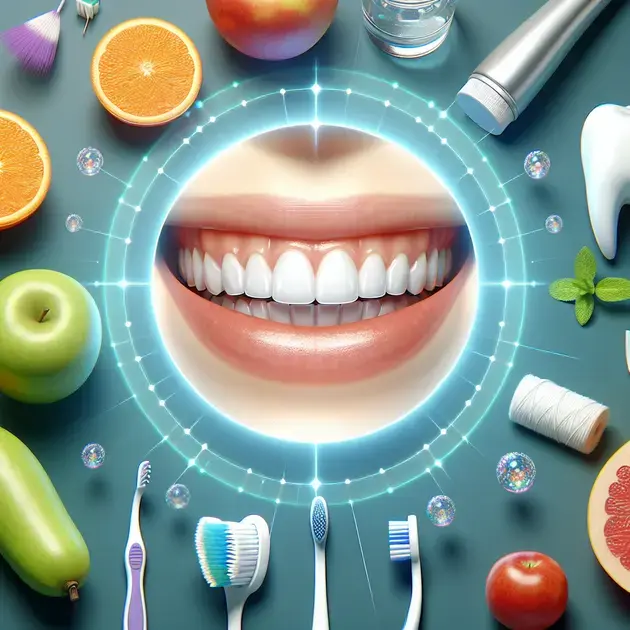When it comes to maintaining good oral health, preventing tooth decay is crucial. By implementing effective strategies, you can keep your smile healthy and bright for years to come.
Regular visits to your dentist, proper brushing and flossing techniques, and a balanced diet are all essential components of preventing tooth decay. Stay tuned to learn more about these strategies and how they can benefit your overall oral health.

The Importance of Preventing Tooth Decay
Preventing tooth decay is crucial for maintaining overall oral health and avoiding potentially serious dental issues. One effective way to prevent tooth decay is by establishing a consistent oral hygiene routine. This routine should include brushing your teeth at least twice a day with fluoride toothpaste, flossing daily to remove plaque buildup between teeth, and using mouthwash to kill bacteria.
An excellent resource for learning more about preventing tooth decay is the American Dental Association (ADA) website. The ADA provides valuable information on proper brushing and flossing techniques, as well as the importance of regular dental check-ups to detect and address any early signs of decay.
Another essential step in preventing tooth decay is to limit the consumption of sugary and acidic foods and beverages. These substances can contribute to the erosion of tooth enamel, making teeth more susceptible to decay. It is also recommended to drink plenty of water throughout the day to help rinse away food particles and bacteria.
Regular visits to the dentist are also critical in preventing tooth decay. Dentists can perform professional cleanings to remove plaque and tartar, as well as identify any signs of decay that may need treatment. By following these preventive measures and staying informed about proper oral care, individuals can significantly reduce their risk of developing tooth decay.
Effective Dental Hygiene Habits for a Healthy Smile
Maintaining effective dental hygiene habits is key to achieving a healthy and vibrant smile. One essential habit is to brush your teeth gently but thoroughly using a soft-bristled toothbrush and fluoride toothpaste. Brushing in a circular motion helps remove plaque and bacteria from the teeth and gums.
Websites like Colgate and Crest offer valuable resources on proper dental hygiene practices. These sites provide step-by-step guides on how to brush and floss correctly, as well as information on choosing the right oral care products for individual needs.
In addition to brushing, flossing daily is vital for removing food debris and plaque from areas that toothbrushes cannot reach. Water flossers, such as Waterpik, can be a helpful tool for individuals who struggle with traditional flossing methods, as they use a stream of water to clean between teeth.
Avoiding tobacco products and limiting the consumption of staining foods and beverages, such as coffee and red wine, can also contribute to a healthier smile. Regular dental cleanings and check-ups play a crucial role in maintaining good oral hygiene and addressing any issues early on.
Nutrition and Tooth Decay Prevention
Proper nutrition plays a significant role in preventing tooth decay and promoting overall oral health. Consuming a balanced diet rich in fruits, vegetables, and dairy products provides essential nutrients that help strengthen teeth and gums. Calcium and vitamin D, found in dairy products, are particularly beneficial for maintaining strong teeth.
To learn more about the connection between nutrition and tooth decay prevention, websites like EatRight.org and the Academy of Nutrition and Dietetics offer valuable resources. These sites provide information on recommended dietary guidelines for optimal oral health and suggest foods to avoid that can contribute to decay.
Snacking on crunchy fruits and vegetables, such as apples and carrots, can help stimulate saliva production, which aids in washing away food particles and neutralizing acids that can harm tooth enamel. Avoiding excessive consumption of sugary snacks and drinks is essential for preventing decay.
Incorporating fluoride into your oral care routine, either through fluoridated water or fluoride treatments from your dentist, can also help strengthen tooth enamel and make it more resistant to decay. By making informed dietary choices and practicing good oral hygiene, individuals can protect their teeth from decay and maintain a healthy smile.

Understanding the Role of Dental Check-ups
Regular dental check-ups are essential for maintaining good oral health. These appointments allow your dentist to monitor the condition of your teeth and gums, identify any potential issues early on, and provide necessary treatments to prevent further complications. By visiting your dentist regularly, you can catch problems such as cavities, gum disease, and oral cancer at an early stage, increasing the chances of successful treatment.
During a dental check-up, your dentist will conduct a thorough examination of your mouth, including checking for signs of decay, gum inflammation, and oral infections. They may also perform professional cleanings to remove plaque and tartar buildup, which can contribute to tooth decay and gum disease if left untreated. Additionally, your dentist may take X-rays to detect hidden issues such as impacted teeth or bone loss.
Aside from addressing existing problems, dental check-ups also play a crucial role in preventive care. Your dentist can provide valuable guidance on proper oral hygiene practices, including the importance of brushing and flossing regularly, as well as the use of fluoride products. They may also offer personalized recommendations based on your individual needs, such as the use of mouthguards for teeth grinding or sports activities.
By prioritizing regular dental check-ups, you are taking proactive steps to protect your oral health and overall well-being. These appointments not only help maintain a bright and healthy smile but also contribute to your overall health by reducing the risk of systemic conditions linked to poor oral hygiene, such as heart disease and diabetes. Remember, prevention is always better than cure, so schedule your dental check-ups regularly to stay on top of your oral health.
How Lifestyle Choices Impact Oral Health
Your lifestyle choices have a significant impact on your oral health. Factors such as diet, smoking, and alcohol consumption can all influence the health of your teeth and gums. For example, a diet high in sugary and acidic foods can increase the risk of cavities and enamel erosion, leading to tooth decay and sensitivity.
Smoking is another detrimental habit that can severely affect your oral health. Tobacco use not only stains your teeth and contributes to bad breath but also increases the likelihood of gum disease, tooth loss, and oral cancer. Quitting smoking is one of the best things you can do to improve your oral health and overall well-being.
Excessive alcohol consumption is also linked to poor oral health outcomes. Alcohol dries out the mouth, reducing saliva production and increasing the risk of tooth decay and gum disease. Moreover, alcohol abuse is associated with a higher prevalence of oral cancer, making it essential to moderate your alcohol intake for the sake of your oral health.
In addition to diet, smoking, and alcohol, other lifestyle factors such as stress and oral hygiene practices can impact your oral health. Chronic stress can contribute to conditions like bruxism (teeth grinding) and TMJ disorders, which can result in tooth damage and jaw pain. Maintaining good oral hygiene habits, including regular brushing, flossing, and dental check-ups, is crucial for preventing oral health issues and preserving your smile.
**
Conclusion
**
In conclusion, regular dental check-ups are vital for maintaining optimal oral health. These appointments not only help in early detection and treatment of dental issues like cavities, gum disease, and oral cancer but also aid in preventive care by providing guidance on proper oral hygiene practices. By prioritizing these check-ups, individuals are proactively safeguarding their oral health, which in turn contributes to their overall well-being. Remember, prevention is key to ensuring a bright smile and reducing the risk of systemic conditions associated with poor oral hygiene.
Furthermore, lifestyle choices such as diet, smoking, and alcohol consumption significantly impact oral health. A balanced diet, avoiding smoking, and moderating alcohol intake are essential steps in maintaining healthy teeth and gums. Smoking, in particular, poses grave risks to oral health, including staining, bad breath, and increased chances of gum disease and oral cancer. Similarly, excessive alcohol consumption can lead to dry mouth, tooth decay, and gum disease, emphasizing the importance of moderation.
Lastly, factors like stress and oral hygiene practices also play a crucial role in oral health outcomes. Chronic stress can result in teeth grinding and TMJ disorders, leading to tooth damage and discomfort. Therefore, alongside diet and habits like smoking and drinking, maintaining good oral hygiene practices like regular brushing, flossing, and dental check-ups is crucial in preventing oral health issues and preserving a healthy smile for the long term.
.